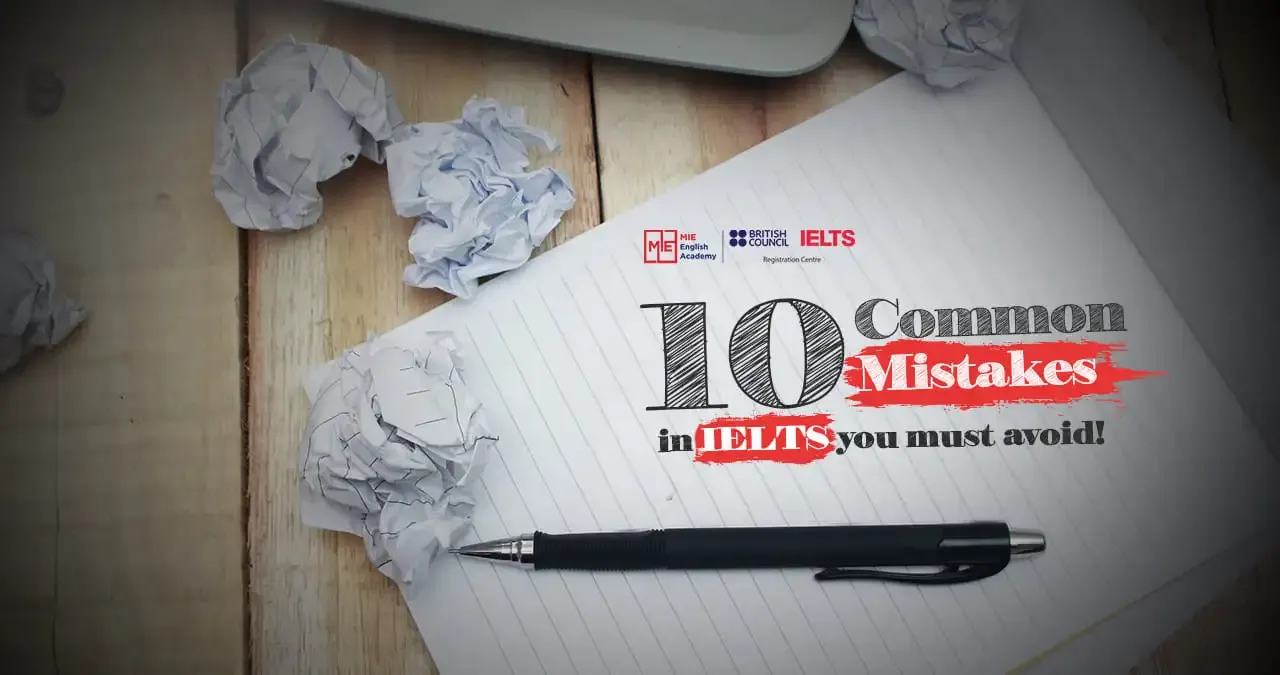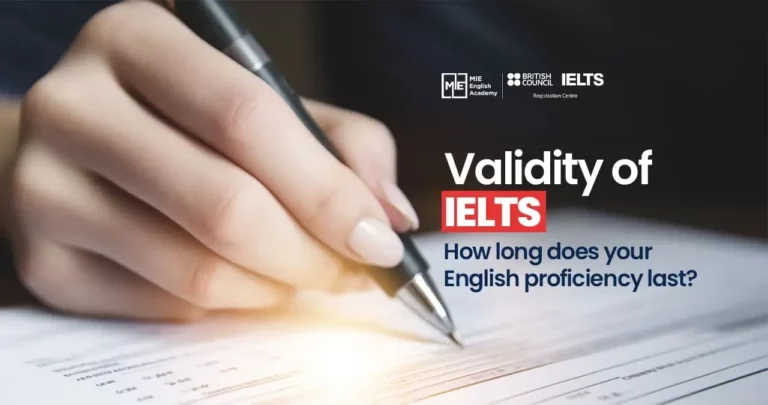10 common mistakes in IELTS you must avoid!

Most students dream of going abroad, and this requires IELTS. The dream of admitting oneself to one’s dream university also requires good scores, but it’s unfortunate that even after you have prepared yourself, you miss the good scores because of common mistakes in IELTS.
How to deal with it? Good news! You can avoid them with a bit of awareness and practice!
Top 10 common mistakes in IELTS
1. Not understanding the question
The majority of students face slight problems while fully understanding the questions. This is where you can lose your score. For example, discuss both of your views and opinions.
Here you must talk about the views and what you think. If you skip anything, it will impact your scores.
Tip: Try to underline the keywords first. Read the question twice; it will help you.
2. Writing too little or too much
Try to maintain the word count in IELTS. For example, if it says anywhere no more than 250.
Tip: Practice often, then try to set a timer so that you know when to finish.
3. Poor time management
Before we suggest that, please read the question twice. Do not limit yourself to one question too long; it will ruin your time.
Tip: Learn how much time to spend on each task. For example, don’t spend over 20 minutes on Task 1 of writing.
4. Not practicing speaking enough
The speaking test is the scariest part for students. But do you know it is a good chance to show your communication skills? Just try to sound natural.
Tip: Speak every day on several topics. Try to talk in front of the mirror, too. The more you practice, the more you will understand your lack. Firstly, focus on fluency, not perfection.
5. Ignoring standard Grammar and spelling mistakes
Try to focus on grammar and spelling. Simple errors or misspellings in a sentence can also affect writing scores.
Tip: Try listening to podcasts or English interviews; they will help you improve your grammar naturally.
6. No real practice with real tests
Before participating in any exam, always attend as many mock tests as possible. Because when you face the real environment, you will understand where you need to improve.
Tip: Solve the previous IELTS mock test questions, set a timer, and practice independently.
7. Repetitive vocabulary
Do not ever repeat exact words over and over again, such as constant use of actual words like ‘important“, ‘bad,’ ‘good,’ etc. If you must use the exact words again, try synonyms.
For example, in one place, you have written ‘important’; in another, you can write ‘crucial” because repeating can make your writing dull and limit your lexical resource score.
Tip: Add synonyms and paraphrases to show a broader range of vocabulary. However, make sure your word choices are appropriate. Writing with extra advanced vocabulary without maintaining harmony can cost you more.
8. Incorrect use of linking words
Some common errors every student makes are misusing or overusing the correctors. Like “however” and “moreover “. First, try to understand and symmetrically use these. Otherwise, your sentence might sound robotic and lose its natural tone.
Tip: Use a variety of cohesive devices appropriately. Avoid mechanical or repetitive use. Use linking words naturally, just as you would in a well-organized essay.
9. Lack of examples and development
Ideas that are not well-developed with explanations or examples can weaken your argument, especially in Task 2. Some students make good points but fail to explain them fully.
Tip: Use the “PEE” method—point, explanation, example—for each main idea. This structure ensures you present and support your idea clearly with relevant details.
10. Failure to edit and revise
Remember in school days or high school; students used to finish their papers before the deadline so that they could revise?
Keep this practice consistent to help you recheck your mistakes and awkward phrasing, which you might have done unknowingly.
Tip: Train yourself to finish writing a few minutes before time is up. Use this time to scan your answer and fix any minor errors quickly. This habit can make a big difference in your final score.
These tips and tricks will help you avoid common mistakes in IELTS. In addition, always remember that practice is the core of achieving your goals.
Now that a question arises:
Where will you find the proper guidance to maintain the desired and dream scores?
The answer is – Why MIE English Academy?
Get expert help at MIE English Academy!
The British Council-approved centre MIE English Academy has its own way to fulfil the students’ desired score.
They have:
- Expert Guidance
- One-on-one session
- Free mock test
- Free materials
If you want personal feedback, expert tips, and test practice, MIE English Academy is here to help!
Our experienced trainers guide you step by step so that you don’t just prepare—you succeed. Whether you’re aiming for a 6.5 or 8.0, we’ll help you confidently reach your goal.
Start today and join MIE English Academy to find better guidance with amazing scholarships. Not only will your future self, but your pocket will also thank you.




